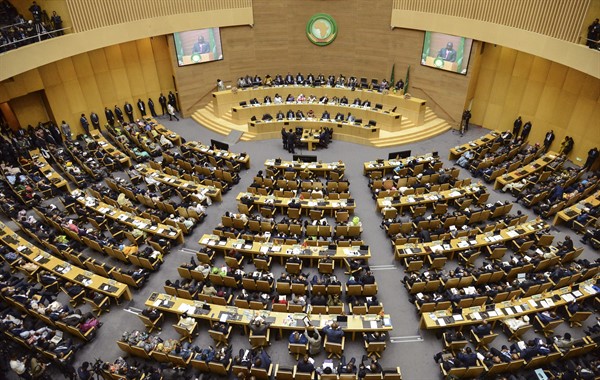A number of recent developments, including the civil war in Ethiopia and a spate of military takeovers in Mali, Guinea, Sudan and Chad, have exacerbated longstanding concerns of democratic backsliding, the return of military coups and the viability of the nation-state in Africa. The reactions of regional bodies and the African Union to these developments have been typified by carefully worded diplomatic statements, suspension of erring member states from group activities and weak sanctions, evoking familiar criticisms of those organizations as “dictators’ clubs” beholden to national leaders at the expense of the citizens they ostensibly serve.
The inability of these bodies to effectively mediate in regional conflicts or reverse illegal power grabs, let alone prevent them, raises questions about their effectiveness in enforcing “good governance” in their regions and across the continent. And for many other observers, the crises in Ethiopia, Mali, Guinea, Cameroon, Sudan and elsewhere also call into question the commitment of member states to enforce protocols they signed up to, and highlight the structural, institutional and ideational hurdles that handicap the ability of these organizations to enforce their policies.
In crises across the continent, the African Union is notoriously slow to respond or get involved, sometimes taking days to offer even a perfunctory statement of acknowledgment or concern. Last year, for example, at the height of an Ethiopian military offensive in Tigray marked by summary executions, rapes and allegations of ethnic cleansing, AU Commission Chairperson Moussa Faki Mahamat praised the Ethiopian government for “bold steps to preserve the unity, stability and respect for the constitutional order of the country.” Flawed polls in Tanzania and Cote d’Ivoire last year were regarded by South African President Cyril Ramaphosa, then serving as the AU’s rotating chairperson, as “successful,” despite major concerns about the fairness of both. The AU’s inconsistency in enforcing its own policies, as exemplified by the suspension of Mali and Guinea but not Chad after illegal military takeovers in all three countries, opens up the organization even further to charges of incoherence, hypocrisy and doing the bidding of major powers.

